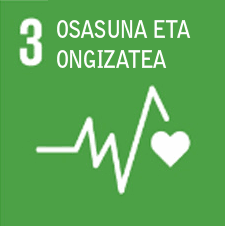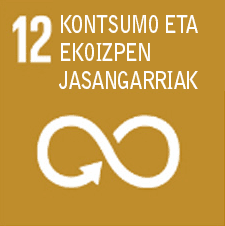IS OUR SNACK HEALTHY
- Taldearen izena
- FANTASTIC SCIENTISTS
- Taldekideak
-
- GORKA BASOA NUÑEZ
- MAIALEN ASPOROSA
- BINTOU SANE
- Irakaslea / tutorea
- ZORIONE FUNDAZURI URKIDI
- Ikastetxea
- ELORRIO BHI
- Maila
- dbh3
- Herria
- ELORRIO
- Probintzia
- Bizkaia
- Hizkuntza
- English
- Lanaren eremua
-
- Osasuna
- Proiektu mota
- Ikerketa proiektua
- Proiektuaren txostena
-
 Deskargatu
— 764 KB
Deskargatu
— 764 KB
Ikertzaileen balorazioak
Mari Paz Espinosa Alejos
Economía del Comportamiento/Economía Experimental
Facultad de Economía y Empresa
UPV/EHU
This is a very good project. The research question is very relevant and well formulated. Do students have healthy eating habits? The design of the questionnaire is well thought and performed. Data have been collected in two different weeks to check if the results are robust to the moment of data recollection.
The conclusions are very well presented. The graphic representations are very useful to summarize your results. I found it particularly interesting that you found gender differences and this is something to explore further.
As is usually the case in Science, your experiment opens up new questions. Would some awareness intervention improve eating habits? For example, you could provide information about calories, nutrients, etc. of each type of food to half of the school. The other half would be the control group. If you run the questionnaire again, do you observe any difference between the informed group and the control group? Of course, this is a different research question and it would require another experiment!
Finally, I would like to encourage you to follow the path of science and keep up the good work.
___
Leire Reguero Acebal
Neurociencias
Facultad de Medicina y Enfermería
UPV/EHU
Hello The fantastic scientists! Congratulations for your project! Although nowadays I investigate in the field of Neuroscience, I studied Pharmacy so I am familiar with the topic you have chosen, and I think that it is really interesting and a very important health problem.
About your project, you have planned and described the main points very well. I would like to highlight that it was a good idea to run the survey twice to see if the results hold up over time or not. I also think that the tables and graphics you have used help a lot to understand your research.
If you continue with this project, I would recommend you to make the same type of graphic for the first and the second survey, so you can see if the results hold up over time. I think that the second type of graphic is more visual and it also differentiates between girls and boys, so I would chose this type of graphic. Good luck!
___
Gabriel Rodriguez San Juan
Psicología (Investigación Básica sobre Aprendizaje y Atención)
Facultad de Psicología
UPV/EHU
¡Hola Fantastic Scientists! ¡Enhorabuena por vuestro proyecto! Habéis escogido un tema de suma importancia. La información que habéis recogido es muy interesante y nos ofrece una fotografía de los hábitos de consumo de los estudiantes en sus almuerzos en la escuela. Me puedo imaginar el trabajo que ha supuesto recabar, ordenar e interpretar los datos, y realizar la presentación en vídeo y en papel. ¡Buen trabajo! Un consejo. De cara a presentar los datos de manera clara y concisa, en el futuro a lo mejor es buena idea agrupar los datos de todos los cursos (ya que no se discuten las diferencias entre cursos). Por ejemplo, mostrar el porcentaje de estudiantes de todo el instituto que come fruta en el almuerzo sería un dato rotundo, claro y fácil de recordar e interpretar por el lector/oyente. Por último, desde mi área de conocimiento (la psicología), os animaría a que en el futuro indagaseis sobre las causas de estos hábitos alimenticios que habéis encontrado (así se podrán dirigir de manera más eficaz las campañas para convencer a la gente para que los cambien). Por ejemplo, sería interesante saber por qué los estudiantes (y/o sus progenitores) no eligen la fruta como almuerzo: ¿porque no tienen tiempo para comprarla?, ¿porque no les gusta?, ¿porque es muy cara?, ¿porque no es fácil de transportar y/o comer?, ¿porque ni siquiera se lo han planteado? ¡Reitero mi enhorabuena por el trabajo realizado y os animo a que sigáis manteniendo este espíritu científico y este entusiasmo a la hora de mejorar aspectos de nuestra sociedad!

 Deskargatu
Deskargatu

